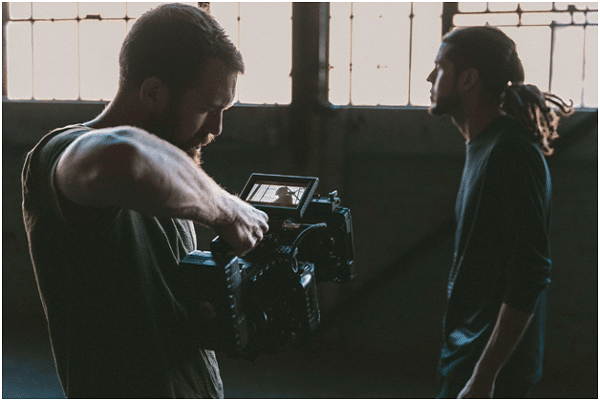Table of Contents

Body language is a crucial part of acting, no matter the role you’re going for or where you intend to focus your sights on in the future. It tells the audience how you feel, even if you’re not speaking. Your body language also tells your audience what you might do next, which helps them understand the story better.
But as an actor, it’s important to be aware of your body language to make it work for you and not against you. When used well, it can be a hugely powerful tool, but it can also be detrimental if there isn’t much thought put into it, making it one of the biggest parts of learning your method and craft.
The effects of body language on your acting ability
It is important to be aware of how your body language can affect your performance. Basically, you want to actively avoid any negative signs, such as slouching or crossing your arms, as this can make you appear closed off and uninterested in what you are doing.
You also want to avoid any overly inappropriate positive body language movements, such as gestures that seem too big for the space or excessive smiling. In these cases, you can quickly distract the audience from what you are trying to say or do, making it difficult for them to focus on your character at all.
Essentially, body language comes about from years and years of conditioning, meaning you acquire certain behaviours from the world around you and the skills you learn. But when it comes to acting, you need to be aware of how your body language is affecting your skills and whether you need to improve your craft in this way.
The way your body moves and functions can say a lot, and in some cases, you may be giving the wrong impression. This can be negative when it comes to auditions or meeting with casting agents.
Examples of ‘negative’ body language include:
- crossing your arms
- looking away
- avoiding eye contact
- drooped shoulders
- mouth-breathing
- fiddling — i.e. playing with your hair.
How to stop involuntary bad body language
There are a number of ways to stop involuntary bad body language, but nothing is more effective than practising good posture and becoming aware of how you may be presenting yourself in the moment.
For instance, examine your stance right now. Are you sitting straight and making sure that your shoulders are back and down? A great way to improve on this is to look in the mirror and observe how your body looks and what kind of ‘signal’ it gives those observing your physical presence. Are you making a good impression? What is it all saying about you? Is it negative or positive or too neutral?
Additionally, taking professional acting courses can help you significantly and make you more aware of how your everyday body language affects your craft. Over time, you’ll become more in sync with how you naturally gravitate toward certain behaviours and open your mind to improving these instances.

How does body language work in acting?
When you’re an actor, body language is everything. You convey how your ‘character’ is feeling in that moment, without having to say anything — and that’s powerful. An actor’s job is to get inside your character’s head, get into the moment, and create that emotion. If you can do that well, then you’re well on your path to becoming a successful performer. The only way to develop these skills is through practice and repetition.
Additionally, doing little things like reading your script aloud will allow you to naturally understand how your character would react and behave to certain dialogue or actions. When you are portraying a character, you have to understand the psychology of that persona and then try to find out what their body language is like or would be like in the real world.
For example, when your character feels sad, they will likely take on a slumped posture; and if they feel angry, they will have an aggressive stance. Understanding how all of this works for your character’s narrative is the most expressive form of communication. It can be used in various ways to give the personality you’re portraying more depth and dimension.
When done right, actors use body language to communicate different emotions, thoughts, and feelings. They use gestures, posture, facial expressions, eye contact, and voice to communicate these things. Body language can also be used for comedic timing or to emphasise a certain emotion or mood in the story being told. Of course, all of this takes time to learn and develop, and you’ll need to commit the energy and patience to building these skill sets.
But just like the age-old saying goes: practice makes perfect.